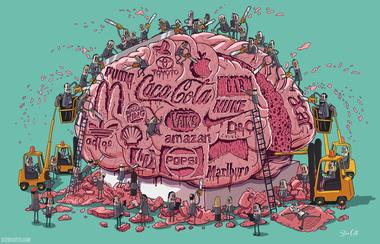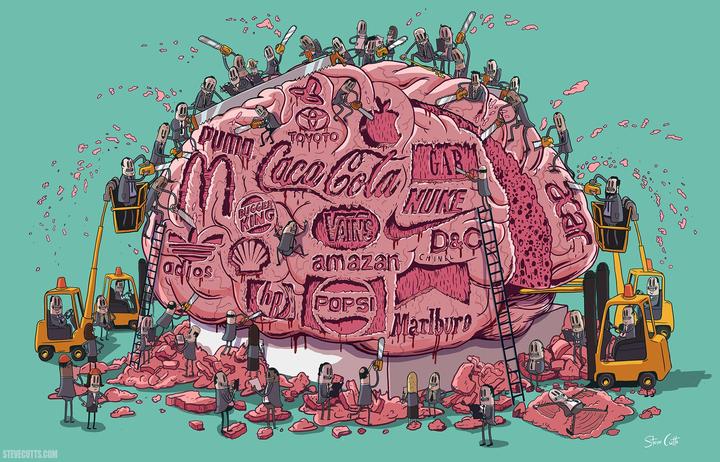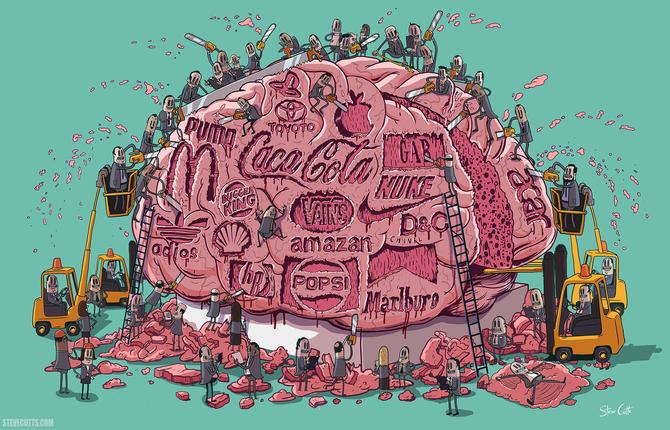The modern world faces many problems, the emergence of which is determined by the development trends that are typical of modern civilization. It is about consumption as a property of human existence, and more widely, as one of the characteristics of the essence of a man. The processes of globalization make the process of consumption and consumer orientation a universal feature of modern public life. Consumption in the modern world is associated with the sphere of the economy, which tends to develop at the expense of other spheres of society and human life, and therefore consumption is relevant for today (Todd 49). In these conditions, advertising activity has become an objective reality of modern everyday life. Consumerism expresses a strong propensity to purchase goods and services as individualization through consumption (Todd 48). Advertising represents goods and services as a standard of consumption, by various means trying to attach a mass person to these standards, which are often designed for a narrow elite stratum. It is in this case that one can observe the negative effect of advertising on the consumer and society as a whole. Thus, advertising creates new, in many ways destructive patterns of behavior, value orientations and forms of identity and ultimately stimulate consumer trends, their virtual worlds of images and brands offering some sort of individualization of consumers' lifestyle and manipulating the consciousness of society.




Body
Consumerism as a term now becomes analogous to over-consumption. In the modern world, consumption is becoming a kind of addiction. For a person who suffers such dependence, the goods lose their own importance and become only a symbol of belonging to a certain social group. The idea of the possibility of achieving social superiority through consumption gives rise to the belief in the buyer's mind that the act of purchase itself is capable of delivering more satisfaction than the actual product that is being acquired. Human happiness is made dependent on the level of consumption; consumption becomes the goal and meaning of life, determining the social status (Teixeira 18). The consumer society provides people with a system and practices that serve the need for rapprochement and distancing. This, in turn, affects the quality of the society, in which people live, their communication and values, and ultimately the quality of life. Demonstrative expenditure works as a guarantee of predictability and the basis of trust from potential partners. One may assume that a growing supply of commerce makes a person's life better by providing him or her with a huge selection of the necessary for him, and reasonable and critical perception of the media and advertising can help a person make a better choice for themselves (Šramová 1028). Nevertheless, due to the massiveness of advertising, which is a great part of the social life of any person, not everyone is able to critically evaluate information and not succumb to the many marketing approaches aimed at manipulating human actions.
The main goal of advertising is to exert emotional and psychological influence on a person in order to persuade people (to buy goods, use the service.) Modern advertising tries to create conditions for the buyer to understand the advertising message, purchase it and provide a constant buying process (Teixeira 2) Therefore, on the one hand, one can say that advertising can have a positive effect, providing the consumer with the information that is necessary to him or her depending on a person’s needs. However, one should also take into account the fact that advertising imposes certain stereotypes and norms, forming misperceptions and certain patterns of behavior in society, and developing consumerism as an indicator of status and the need for modern people to purchase the best goods and services. People’s reaction to advertising depends on how they process information, understanding this process is extremely important. However, the ubiquitous influence of advertising creates a fertile ground for manipulating the human mind and in most cases creates an environment in which a person is forced to follow the propagandized norms to possess a particular commodity as an indicator of status and success. Therefore, the race for luxury goods becomes an actual feature of modern consumption.
Attached file: Consumerism: The Negative Impact .docx
Click download to get access to a full version of the paper




Commerce starts to influence from the earliest age, and also affects the basic spheres of a person's social life, dictating certain rules and creating prejudices. Thus, advertising significantly affects children. The strategy of companies is clearly conditioned by the psychology of children. A child is interesting to the market and advertising producers because he has his own money and spends them, often obeying advertising. The child also influences the decision of the parents about what to buy. A particularly important point is the fact that by the time a child grows up, his consumer needs and habits are already formed, thanks to the advertising he saw in his childhood. Advertising is a simplified scheme of behavior, gives the child the opportunity to develop. Children master the stereotype of the behavior of an adult constantly. Advertising in the perception of a child is a synthesis of the game and a fairy tale; he or she cannot adequately distinguish between reality and commerce (Šramová 1026). The heroes of the commercials are simple and linear, their desires and actions are devoid of nuances, and they are understandable to the child. Thus, the child will be formed false values: the advertisement of expensive products, luxury goods that are inaccessible to the majority of the population, leads to negative emotional reactions. In addition, the significant involvement of adolescents in the media space is facilitated by the manipulation of advertising by their behavior and preferences (Šramová 1028). Stating the fact that the advertising has a significant influence on the formation of preschool children, schoolchildren, and later young people, it is necessary to note its destructive role in the process of socialization of the younger generation, in the formation and strengthening of positive social and moral qualities of children.
Further, it is well known what a powerful influence the media have on a person. Advertising has ceased to be just an economic phenomenon and becomes an element of mass culture. It is characteristic that gender stereotypes are always present in advertising; they constantly form images of the man and the woman at the majority of recipients. Often our self-esteem, perception of others, choice of profession, and ultimately human behavior also depend on these images and stereotypes (Balitaan 2). With the help of gender stereotypes, gender roles are fixed that limit our life opportunities and choices. Promotional proposals targeting women offer a large number of advertising cosmetics, clothing, furniture, accessories, household items, food, and recreation. All this is based on the values that are central for women of traditional society, that is, on themes of beauty, health, ways of preserving them, the home, maternal function (Balitaan 2). Since childhood, commerce has imposed gender characteristics, using advertising of children's goods and services and forming a stereotypical representation from an early age (Šramová 1028). Advertising targeted at men mainly affects the professional sphere, education, consulting services, which confirms the desire of men to career growth, professional development. On the one hand, one may notice that gender targeting of marketing is logical and allows the consumer to anticipate the necessary goods for himself. However, one can also conclude that the distribution of gender stereotypes in advertising carries such stereotypes into social life, which adversely affects public attitudes and imposes a certain pattern of behavior for consumers, both consumer and social.




Conclusion
Advertising turns into a way of psychological impact on the consumer, which is imposed this or that point of view about the product with a specific purpose: the purchase is not always the right product. Marketers who develop advertising can find a lot of psychological ways to influence the buyer and create all the conditions for the purchase of the product, as well as the formation of certain social stereotypes. Therefore, at the heart of any advertising technology is the manipulation of consumer behavior. These data indicate that advertising has a negative impact on the development of children and adolescents, from an early age, forming consumer habits that have a big impact on people already in adulthood, and also imposing certain social stereotypes. A special trend is the gender targeting of advertising, which promotes better selling, but it generates not only the development of negative consumer habits but also generates stable gender stereotypes in society. Today, the gender approach to advertising and marketing is manifested in most groups of goods and services. Thus, advertising images come back into life, influence human preferences, determine life scenarios and, spreading everywhere, dictate their consumer norms that determine the human status and force it to go on the subject of commercial manipulation. Therefore, advertising and commerce have a significant negative effect on the consumer behavior of society, causing the spread of consumerism as a negative trend of dependence on goods.